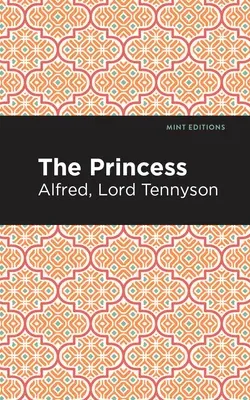The Princess (1847) is a poem by British poet Alfred, Lord Tennyson.
Written before Tennyson was named Poet Laureate, the poem addresses
accusations from critics that the poet refused to write on serious
subjects, as well as the founding of Queen's College, London, the first
college for women in Britain. Despite its comedic tone and somewhat
critical outlook, the poem is seen as an important early work dedicated
to exploring the concerns of the burgeoning feminist movement.
Unable to find the princess Ida, a young prince seeks the council of her
father, King Gama, in order to locate his young fiancée. The king tells
him that Ida has fled to a distant retreat, where she has founded a
university for women and forsaken the ways of men. Joined by his friends
Cyril and Florian, the prince disguises himself as a woman and journeys
in search of Ida. The three enroll as students at her university,
learning its lessons and absorbing its goals for equality between men
and women. As the prince grows close to Ida, he struggles to hide his
true identity from her, and is eventually forced to flee. Captured, he
is held by the princess while King Gama and his father threaten to go to
war over his release. As Ida prepares for battle, the prince and Florian
manage to escape, returning home to prepare for conflict with Ida and
her brothers. The Princess is a serio-comic poem which dramatizes the
goals of the early feminist movement while examining the institution of
marriage and the highly gendered nature of education and opportunity in
Britain.
With a beautifully designed cover and professionally typeset manuscript,
this edition of Alfred, Lord Tennyson's The Princess is a classic of
English literature reimagined for modern readers.


